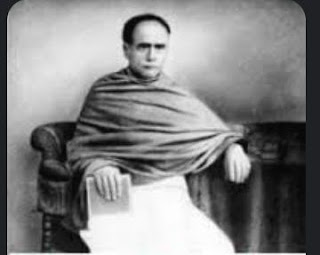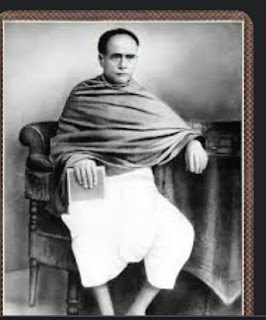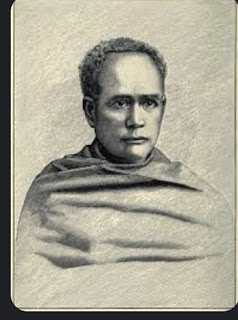The biography, achievements, age, early life, career, and lifestyle of Ishwar Chandra Vidyashgar
EARLY YEARS AND SCHOOLING
Ishwar Chandra Bandopadhyay, Vidyasagar's birth name, was from a low-class Brahmin family. The village priest Thakurdas Bandyopadhyay was his father. Vidyasagar's parents made sure he had a quality education despite their financial difficulties.Vidyasagar demonstrated exceptional intellectual abilities from a young age, which caught the attention of notable scholars in the region. Recognizing his potential, they helped him secure admission to the Sanskrit College in Calcutta, an institution renowned for its emphasis on traditional learning.
ACADEMIC PROWESS AND ETHICAL VALUES
During his time at Sanskrit College, Vidyasagar's brilliance shone through as he mastered various disciplines, including literature, philosophy, and mathematics. More importantly, he imbibed a strong sense of ethics and moral values that would shape his future endeavors. After completing his education, Vidyasagar took up a teaching position at Fort William College, where he continued to inspire students with his vast knowledge and commitment to education.
LEADER OF EDUCATION REFORMS
Vidyasagar realized that the prevalent Indian education system was not serving the masses effectively, particularly those from marginalized communities. To rectify this, he advocated for the widespread dissemination of education, irrespective of caste, creed, or gender. He believed that education was not merely a privilege but a fundamental right that could empower individuals and transform society as a whole.
In 1846, Vidyasagar joined the Sanskrit College, where he played a pivotal role in implementing far-reaching reforms. He introduced a simplified version of the Bengali alphabet, making it accessible to the common people and enhancing their literacy rates. Vidyasagar's efforts were not limited to traditional Sanskrit education; he also emphasized the importance of teaching contemporary subjects such as English, science, and arts.
ADVOCATE FOR WOMEN'S RIGHTS
Vidyasagar went beyond only changing the law to support women's rights. By founding schools for girls, he defied social conventions that barred women from pursuing higher education. In addition, he advocated for women's active engagement in public life and fought against the widespread practice of "purdah," which kept them confined to their homes.
Author and Interpreter EXTRAORDINAIRE
Vidyasagar's intellectual prowess was not confined to his efforts in education and social reforms. He was a prolific writer, contributing extensively to Bengali literature. His most celebrated work, "Barnaparichay," was a textbook designed to introduce Bengali alphabets to beginners. He also translated several important texts into Bengali, including the works of Vedic literature, which were previously inaccessible to the common people due to the language barrier.
HISTORY AND ACKNOWLEDGMENT
Today, numerous educational institutions, roads, and prominent landmarks bear his name, honoring the memory of Ishwar Chandra Vidyasagar and his extraordinary contributions. His biography serves as a testament to the power of education, compassion, and vision in bringing about lasting social change.
















0 Comments